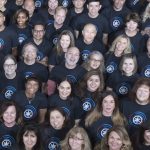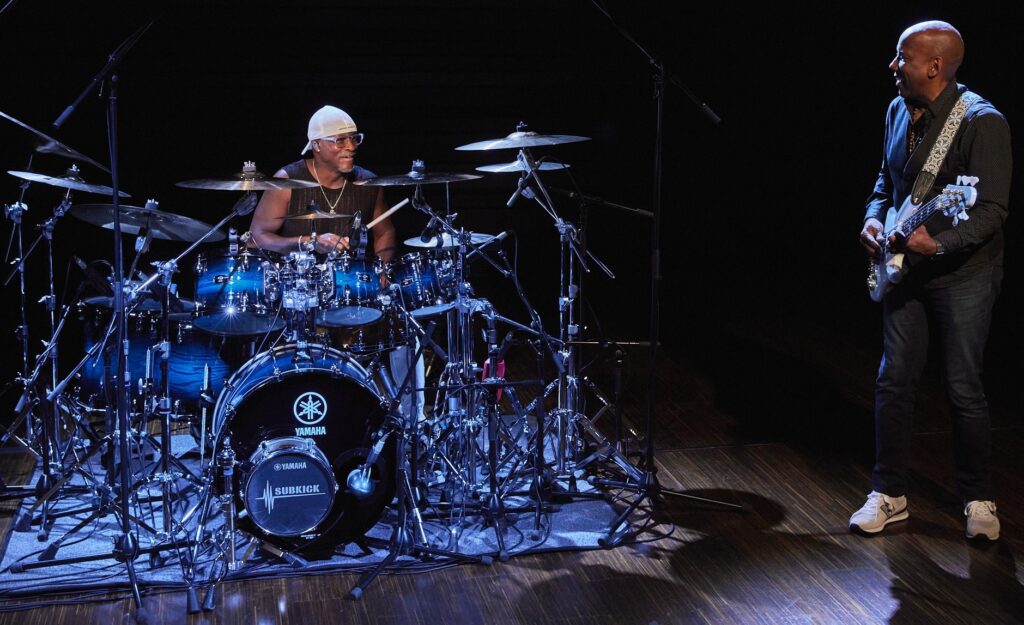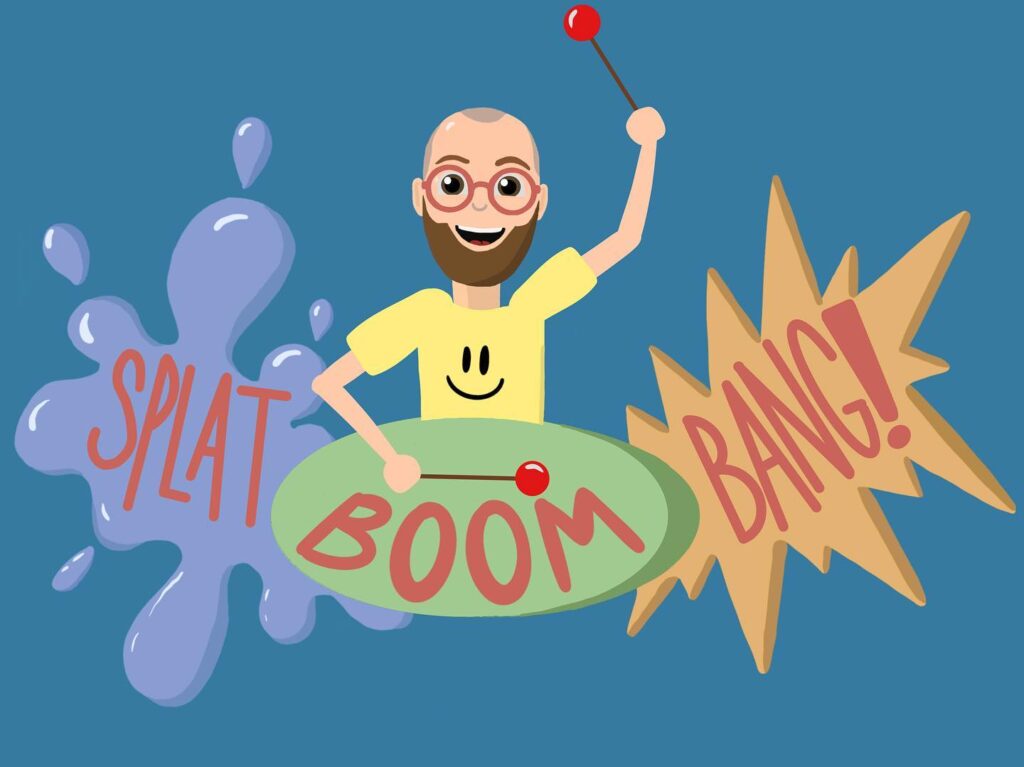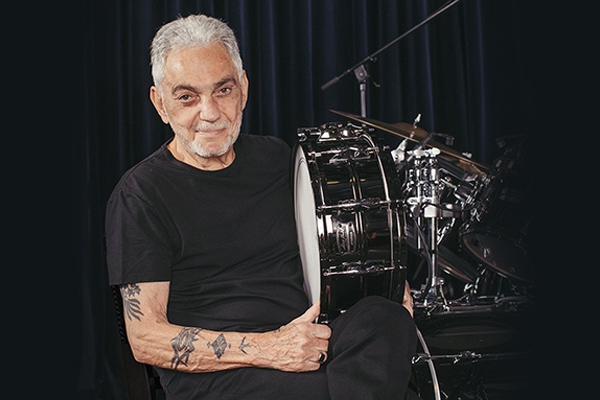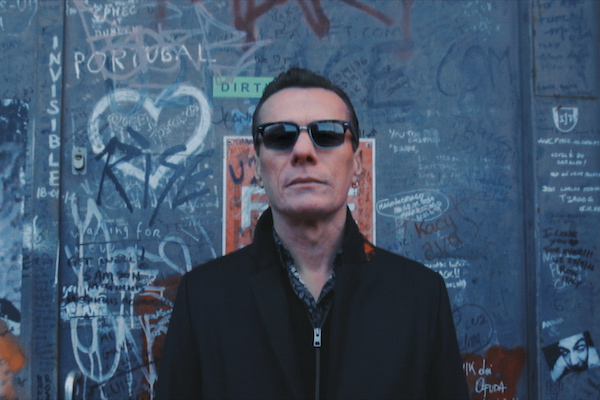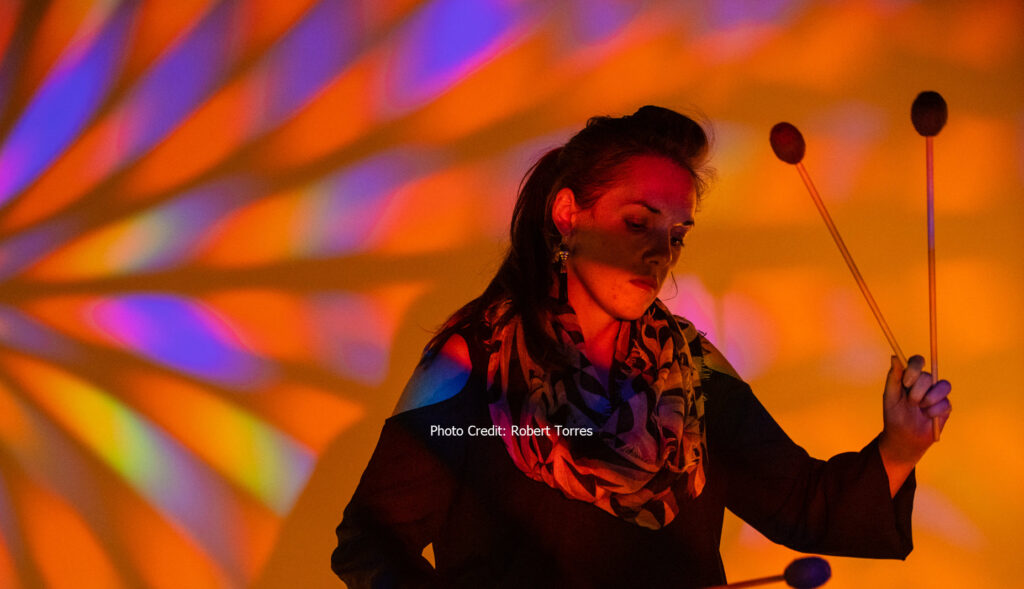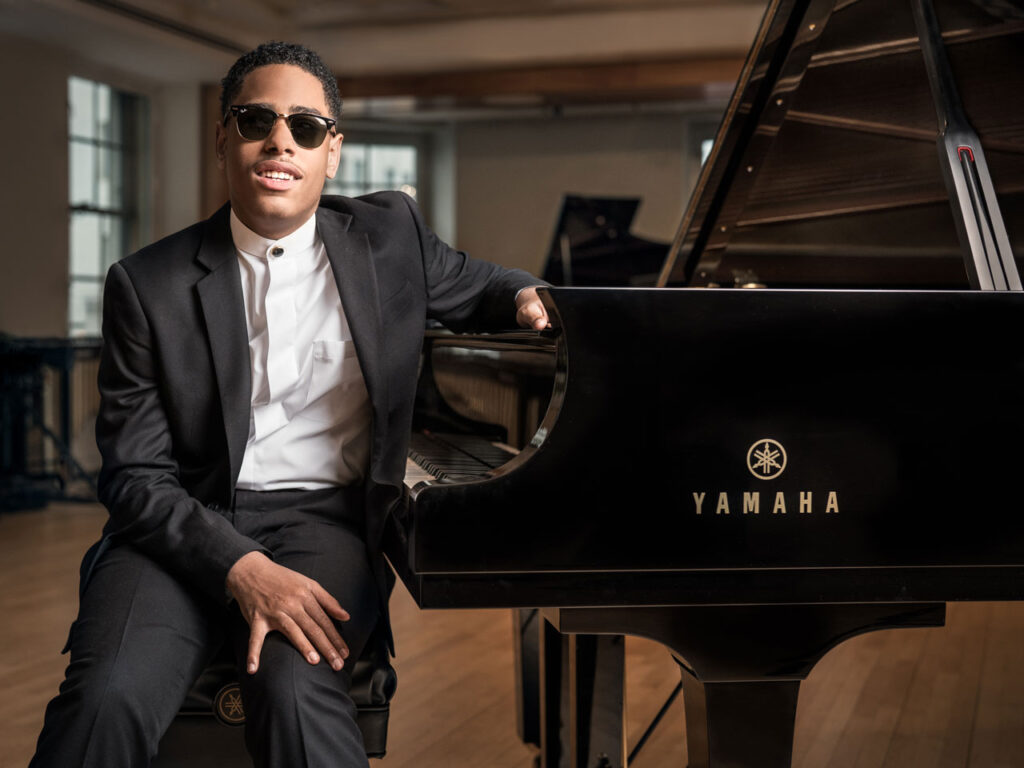Tagged Under:
It’s All About the Intention
A conversation with drummer Nikki Glaspie.
Yamaha Artist Nikki Glaspie is one of the premier drummers in music today. From her earliest days playing drums in church (at the tender age of seven!) to attendance at the Berklee College of Music, from live appearances and recording dates with jazz legend Maceo Parker and Ivan Neville’s New Orleans funk syndicate Dumpstaphunk to a five-year stint with Beyoncé’s backing band, Glaspie has developed a mastery of multiple genres and a deep conviction in the power of music to heal and inspire. “I try to spread love wherever I can,” she says. “Everybody needs love. That’s what I try to convey through my playing.”

We recently had a chance to sit down with Nikki and talk with her about her roots, her philosophy and her unique approach to drumming.
You started playing when you were quite young. What is your first musical memory?
I can actually go back to maybe when I was seven, sitting behind the drums at church. I can picture it and feel it in my bones. I [remember thinking], this is what I’m supposed to be doing; this feels like home.
How did you transition from church music into secular music?
It was a slow progression, but I always played in [school] band. If there were any drums to be played, that’s what I was doing! The first time I heard jazz was in jazz band. We listened to a recording of “Satin Doll” and then we tried to play it. It was terrible! [laughs] I was saying, “This doesn’t sound anything like that,” but I guess that’s why you keep trying. But I was always in every band: concert band, symphonic band, pep band, marching band, I played for the chorus, I was in the pit for the plays.
It was my friends in high school who exposed me to other types of music. I was in 10th grade when [Nirvana’s] In Utero came out and that was the record, you know. My dad introduced me to Van Halen and Eve 6 and Rage Against the Machine and the OJ’s and The Gap Band. So I kind of got it all and I fell in love with it all.
Then you ended up at Berkelee.
Entering [that] world was definitely a different experience for me because I now play a completely different style of music [than I did] when I got there. I [attended] the summer program first, before the fall semester started, to check it out. That’s when I became completely obsessed with Latin and Afro-Cuban jazz. I [thought], I’m going to figure this out. I’m going to make a living doing this. I eventually went to this club called Wally’s, on Mass Avenue. That’s when I really fell in love with funk and fusion.

Then I joined a cover band and made the rounds, started playing weddings; that’s how I learned to be versatile. I think my first gig in Boston was a blues gig with José Ramos. He called me up and said, “Do you know how to play blues?” I said, “I don’t, but I’m going to learn today because I’m hungry. I need some food.” That is how you put food on the table: play a gig. So that was my transition from Berklee into other styles of music. I mean, I went to class — sort of [laughs] — but I figured out that what I needed to learn, I could learn from my peers: the people around me who were also there studying and trying to get it together. And thankfully, my parents raised me to pay attention to everything. There’s something to learn from everybody, even if it’s what not to do. I’ll see or hear somebody doing something and I’ll say, “I don’t think that’s a good idea, I probably shouldn’t do that.”
Your next move was to New York. How did that happen?
Basically, a voice told me to leave and go to New York. I always tell people, high risk, high reward! I went to New York with 600 bucks in my pocket [laughs]. The most expensive city in the world! But I made it happen.
Then one day you got the call for the Beyoncé gig.
Well, it was a worldwide call. It was on the radio: Beyoncé’s holding auditions, looking for an all-female band. I didn’t really take it that seriously, but then people started telling me, “You’ve gotta go to the audition! Are you crazy?” And I was, okay, I guess I’ll go because everybody’s telling me to go. So I went and I didn’t think that anything would happen because I didn’t hear anything for almost a week. Then they called me and said congratulations, you’ve been selected to come back to another round of auditions [laughs].
So I went back and did another round. At the end of the day they said, we can’t decide, you’ve got to come back again tomorrow. It was an intense process. But finally, when there were 10 of us in the room, they said this is it, this is the band. I was there for five years.
You know, I really do believe in the power of visualization. You see yourself somewhere, you believe that you can do something, you make it your goal. You have to see it, believe it.
Do you feel that you were born to be a musician?

I think so. For as long as I can remember, I have been beating on things. My parents told me, “You were pulling pots and pans out of the cabinet and beating on them with spoons or whatever you could find.” So I feel I was born that way. It was just kind of, A plus B equals C. If there’s a surface, I’m going to hit it with something.
Some people say, man, I don’t have rhythm, I don’t have a rhythmic bone in my body. That’s not true! You have a heartbeat: that’s rhythm. If that stops, you die. So we all have rhythm. We all live by rhythm. We are rhythm, we breathe it.
You’re one of the founding members of the soul band The Nth Power. How did that come about?
I think it came to be because it needed to be. We were all like-minded individuals and honestly we just kind of all crashed into each other: “Hey man, I think we should play music together.” That’s literally what happened. I’ve known the bass player, Nate Edgar, for a long time — we used to play a lot in Boston at Wally’s.
So then [along with guitarist Nick Cassarino], we just started writing and recording. We talked a lot about philosophy and religion and spiritual things and life: what people go through, feelings, emotions, all of that. And we decided that it would be our mission to spread love, because that’s what everyone needs. The world is just so insane, riddled with war and disease and everything, it’s just so crazy. We just want people to heal. We believe in the healing power of music, and that’s what our mission is.
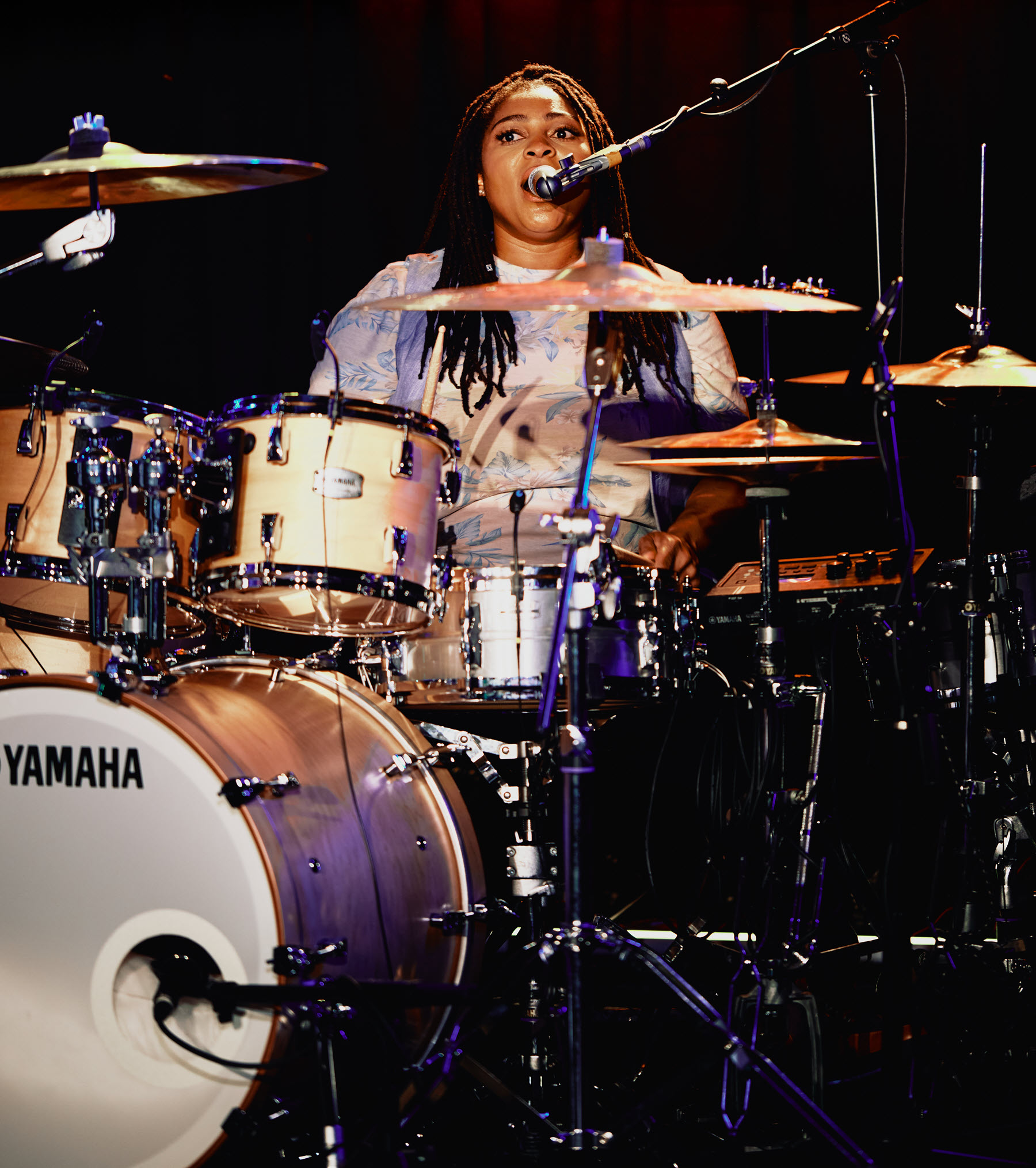
What’s the difference between playing for someone and being in a band?
It’s different because of the collective intention. Our collective intention with The Nth Power is what we decide it to be, but when you play with an artist, it’s what they decide it is. It’s different for every artist, but I try in every musical situation to fill the role, to play the music that is required, not whatever I’m trying to do.
How do you feel music connects us?
Music is the universal language. Different people that come from all walks of life and have different beliefs can hear something and experience an emotion from it. That’s why music has the power to heal: because it can reach everyone, anyone that can hear it.
What keeps you motivated?

I love music. I am forever a student. I want to learn more. I want to hear something that I’ve never heard before. I want to play something that I’ve never played before. I want to create something that’s never been created before. I feel that’s what every artist, every musician wants: they want more. It forever keeps you a kid because it’s the gift that keeps on giving. It doesn’t stop.
You know, it’s called “playing” for a reason. ‘Cause it’s fun! And if you’re not having fun, you’re doing something wrong [laughs].
How has music challenged you personally?
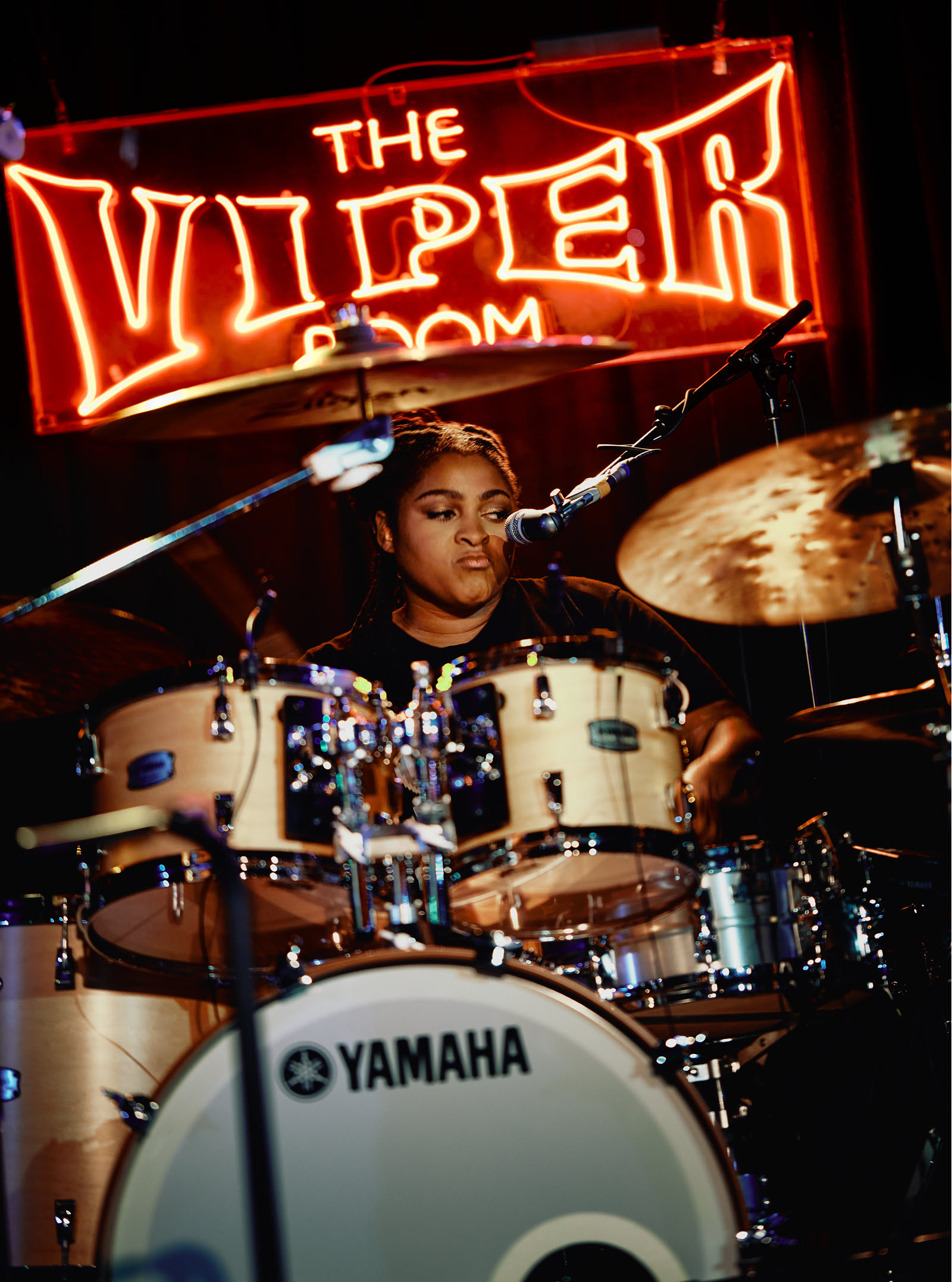
It’s challenged me in so many ways. I always say, if I try to become a better person, I become a better musician, because it comes out in the music. I love music so much, I would do anything — and have done anything — to play it. Lots of sleepless nights, camping out in hotels, the airports, driving in cars for 36 hours, vans breaking down, losing tires, all kinds of crazy things, always trying to get to the gig, to get to that feeling. It’s chasing the dragon. It’s always, when’s the next time I’m going to be on stage? When is the next time that I can play music?
You miss a lot of things [when] you’re out on the road. But I take solace in knowing that I am hopefully providing something for someone else, giving someone an escape from their reality and giving them hope. It’s, you know what? It’s going to be okay. It might look terrible right now and it’s daunting, but we have tomorrow. This too shall pass: that was yesterday, but we’re here today and it’s awesome.
How did you find your voice, and how do you continue to shape it?
I just kept playing, kept searching for things. I kept studying and listening to everything that I could listen to. I always tell young musicians to play with everybody and play every style of music. You never know if you’ll have to pull out that bossa nova you learned 20 years ago on a gig one day. So keep playing. Keep playing and the chops will come. You can’t get frustrated and think, “I can’t do this.” There’s no can’t — there’s only can and will. If you want it, then you can have it and you can do it. I’m still searching for it every day.
I’m primarily a funkateer, but I’m also a rocker, a punk rocker. I love to bash. A lot of people don’t know that side of me, but it’s always been there. [So] my voice is a combination of lots of other voices, lots of influences that come out in different ways. I just try and play what I want to play and put the intention behind it — whatever I want the intention to be. I think intention is really important. What is the message that you’re trying to get across? If you focus on that, then that’s what it will be.
For more information, visit www.nikkiglaspie.com/









